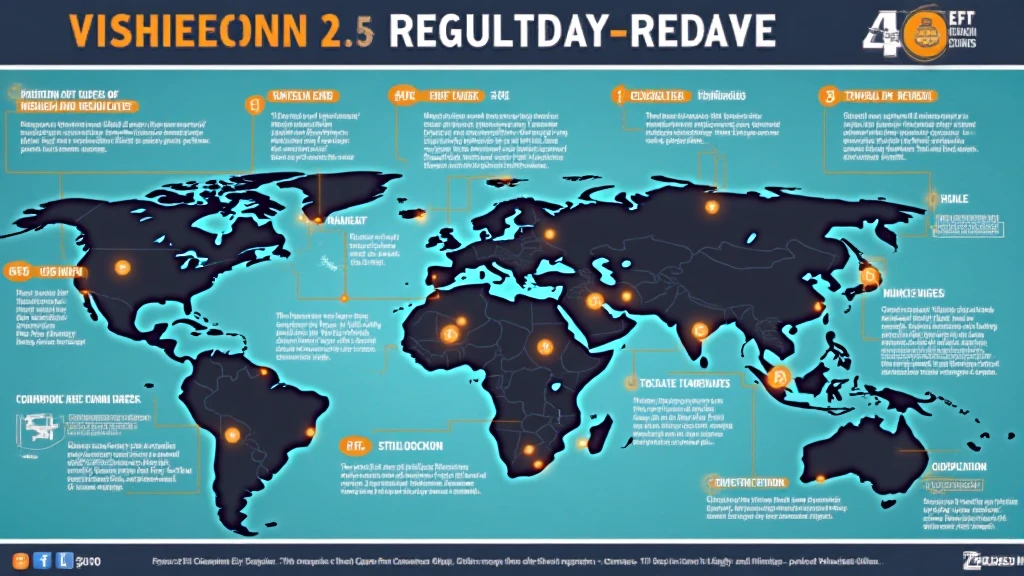Bitcoin ETF Regulatory Landscape: Navigating the Future of Digital Assets
With the surge in cryptocurrency adoption, the regulatory framework surrounding Bitcoin ETFs (Exchange-Traded Funds) has become increasingly complex. In 2024 alone, billions were lost in unsecured DeFi platforms, highlighting the urgent need for robust regulatory oversight. This article aims to explore the Bitcoin ETF regulatory landscape, offering readers a comprehensive understanding of the current state, challenges, and opportunities within this space.
Understanding Bitcoin ETFs
Bitcoin ETFs have gained significant traction as they allow investors to gain exposure to Bitcoin without directly owning it. Essentially, a Bitcoin ETF tracks the price of Bitcoin and is traded on stock exchanges, making it accessible to mainstream investors. Here’s the catch: while they offer a simplified way to invest, the regulatory landscape is fraught with challenges.
- **Benefits of Bitcoin ETFs**: Provide liquidity, ease of investment, and enhanced market participation.
- **Risks Involved**: Regulatory uncertainties and market volatility can lead to significant risks for investors.
The Current Regulatory Framework
Regulations vary across different jurisdictions. In the United States, the SEC (Securities and Exchange Commission) has been cautious in allowing Bitcoin ETFs, primarily due to concerns over market manipulation and investor protection. Let’s break it down further:

- **SEC’s Stance**: As of 2025, the SEC has approved a few Bitcoin ETFs while denying many applications over the past several years.
- **Importance of Compliance**: It’s crucial for ETF issuers to comply with strict guidelines to ensure investor safety.
Global Perspectives on Bitcoin ETF Regulations
Different countries have taken varied approaches towards Bitcoin ETFs, creating a patchwork of regulations that can confuse investors and market participants. In Europe, for instance, the European Securities and Markets Authority (ESMA) has offered clearer guidelines for crypto-assets.
Challenges Facing Bitcoin ETF Approvals
The approval of Bitcoin ETFs continues to face numerous hurdles:
- **Market Manipulation Risks**: Regulators are concerned about the potential for fraud and manipulation in Bitcoin markets.
- **Investor Protections**: Ensuring there are adequate protections for inexperienced investors remains a paramount concern.
Analyses from Key Market Players
Several investment firms and analysts have provided insights on the Bitcoin ETF landscape. Notably, a report by Fidelity indicated a growing interest in Bitcoin ETFs among institutional investors, signifying a pivotal shift in market dynamics.
The Future of Bitcoin ETFs
Looking to the future, the regulatory landscape for Bitcoin ETFs is expected to evolve. Here are some trends to watch:
- **Increased Regulatory Clarity**: More comprehensive regulations that address the unique challenges of digital assets are likely to emerge.
- **Potential for New Market Entrants**: As regulations stabilize, we may see an influx of new ETFs entering the market, broadening options for investors.
Adapting to Local Markets: The Case of Vietnam
In Vietnam, the user growth rate for cryptocurrencies has surged, reaching over 12% in 2024. Local regulations are being developed to manage the risk and efficiency of crypto investments.
- The Vietnamese government is working on clearer guidelines that could foster a more conducive environment for Bitcoin ETFs.
- With a growing interest in digital assets, the local market presents unique opportunities and challenges for ETF providers.
Conclusion
The Bitcoin ETF regulatory landscape is rapidly changing, driven by the need for innovation and security in the cryptocurrency market. As regulatory frameworks evolve, they will undoubtedly shape the future of digital asset investments. Investors and market participants must stay informed about these changes to navigate the complexities effectively.
As the world moves closer to more regulated cryptocurrency frameworks, embracing this shift will not only protect investors but also pave the way for a more resilient market. Remember, not financial advice. It’s crucial to consult local regulators for guidance on investment strategies.
For more insights, check out our related articles like Vietnam crypto tax guide.





